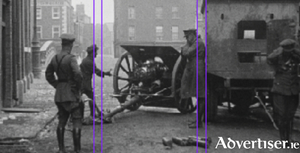Search Results for 'Free State Army'
13 results found.
Four weddings and a mutiny – India 1920
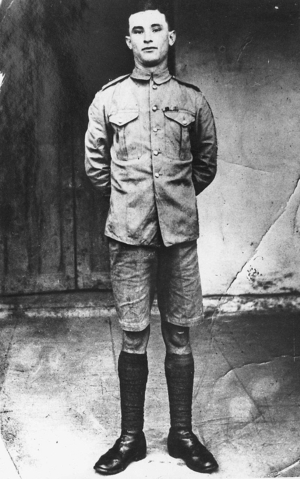
On 28 June 1920, members of the Connaught Rangers Regiment stationed at Wellington Barracks, Jullundur in Punjab, mutinied in protest against the activities of the British Army in Ireland. The irony of their stance as members of a colonial occupying army was, it would seem, lost on them. Two men took the protest to the Connaught Rangers company at Solon Barracks the next day. On the evening of 1 July, a group armed with bayonets attempted to take weapons from the magazine fort at Solon. The guard opened fire, killing a mutineer and an innocent man. The protest started peacefully at both locations—orders were ignored, tricolours were flown, Sinn Féin rosettes were worn, and rebel songs were sung. Sixty-one men were convicted of mutiny. Fourteen were sentenced to death, but only one, James Joseph Daly, was executed. Those imprisoned were released in 1923. Ballina man James J. Devers, one of the Solon mutineers, was among those released. Devers enlisted in 1918.
From trams to buses
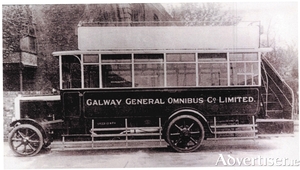
When the Galway-Salthill Tramway ceased trading in 1918, it caused a problem for locals who had been using the service as public transport so a group of local businessmen came together on April 5, 1919 to register The Galway General Omnibus Company Limited as a public company. The directors were Thomas McDonough, Joe Young, Robert Mackie, Michael Crowley, Philip O’Gorman, Martin Hynes and Martin Finan. John Leech was the secretary and Joseph Garvey the manager.
‘The girl we left behind us’
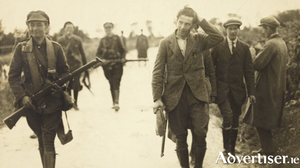
In the immediate aftermath of the recapture of Clifden by the anti-Treaty forces on Sunday 29 October 1922, the town was in a mess. Every house on Main Street had its windows and doors shattered. The streets were littered with glass as a result of explosions. In the houses opposite the barracks ‘not a picture remained on the walls, nor a piece of furniture unscathed’. Porter and spirits ‘flowed out the door’ of Lavelle’s pub. The ‘armoured car’, which had caused so much surprise, and gave cover to allow bombs to be placed, was removed and abandoned at Killery. It was noted that for the first time in living memory there were no church services in Clifden that Sunday.
Monsignor McAlpine would not take orders from boys he had baptised
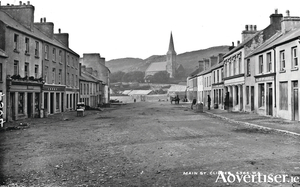
After sporadic fighting in Galway during the summer of 1922, and the occupation of some buildings in the town, including the old RIC barracks in Eglington Street, and the former Connaught Ranger barracks at Renmore, the anti-Treaty forces withdrew into Connermara, and into the east Galway countryside.
Wild nights of burning and murder
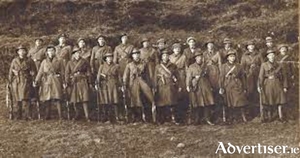
Clifden was not the only town to experience the terror of British forces running wild, shooting, and setting fire to buildings. The previous year, July 19 1920, Tuam suffered a similar experience as Clifden, only mercifully no resident was killed on that occasion.
Last of Liam O’Flaherty’s banned novels is finally republished
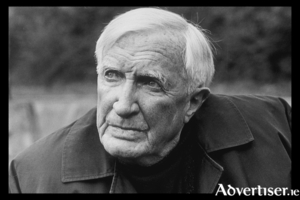
LIAM O'FLAHERTY'S banned novel, The Martyr, has just been republished by Nuascéalta, 87 years since its first and only publication in 1933.
Liam Mellows - tragic hero of 1916
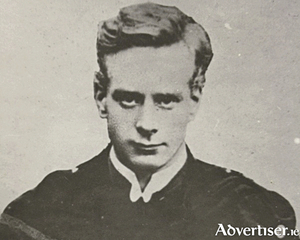
On December 7 1922, Pádraic Ó Máille TD and his friend Sean Hales TD of Cork, walked out of a hotel on Ormonde Quay, by Dublin’s river Liffy. They just had lunch, and were on their way back to the Dáil in Leinster House, a short drive away. Ó Máille, Galway city and Connemara’s first TD, had been appointed Leas Ceann Comhairle (deputy speaker). As they reached their car a gunman stepped forward and opened fire. Both men were hit, but Hales was bleeding profusely. Although seriously injured Ó Máille managed to get Hales into the car and drove to the nearest hospital, where he collapsed, and died.
